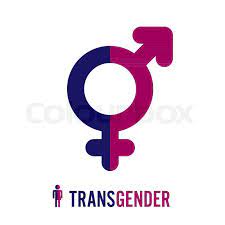In recent years, discussions about gender identity and expression have become more widespread, bringing greater visibility to transgender and non-binary individuals. But with this visibility often comes misunderstanding and stigma. The question, "Is it okay to be transgender?" is one that many people ponder, whether they are questioning their own identity or trying to better understand the experiences of others. In this article, we’ll dive into various aspects of transgender identity, explore misconceptions, and discuss the importance of acceptance and support for all individuals, regardless of how they identify.
Understanding Gender Identity: What Does It Mean?
Gender identity refers to how individuals perceive themselves and what they call themselves in terms of gender. It can align with the sex assigned to them at birth or differ from it. For many, gender identity is a deeply personal experience, influenced by a myriad of factors including culture, societal expectations, and individual experiences. Essentially, understanding gender identity means acknowledging that it is not solely a binary concept, but rather a complex interplay of various identities and expressions.Girl With Vagina And PenisTestosterone Replacement Side Effects
With this understanding, it becomes clear that gender identity is not just about how one identifies, but also about how they express that identity. For some, this may mean transitioning in various forms—socially, medically, or legally—to align their outward appearance with their inner identity. Ultimately, respecting one’s gender identity is crucial to acknowledging their humanity and individuality.
Exploring the Spectrum: Transgender and Non-Binary Identities
Transgender individuals are those whose gender identity does not match the sex they were assigned at birth. This can include trans men, trans women, and those who identify outside the traditional male-female binary. Non-binary identities, on the other hand, encompass a broader spectrum beyond just male and female. People who identify as non-binary may see themselves as both, neither, or somewhere in between. These identities challenge the conventional understanding of gender, emphasizing that it is fluid and can vary significantly from person to person.
The existence of transgender and non-binary identities illustrates the diversity of human experience. Many cultures around the world have recognized various forms of gender for centuries, often celebrating the fluidity of identity. As society becomes more aware of these identities, it is essential to foster a climate of understanding and respect that honors and validates the experiences of all individuals, regardless of where they fall on the gender spectrum.
Common Myths About Being Transgender: Let’s Clear Them Up
Many myths surround transgender identities, leading to misconceptions and discrimination. One common myth is that being transgender is a mental illness. In reality, being transgender is not classified as a mental disorder by major health organizations such as the American Psychiatric Association and the World Health Organization. Instead, the challenges faced by transgender individuals often stem from societal stigma and discrimination rather than any inherent psychological issue.
Another prevalent myth is that transgender people are simply confused or going through a phase. Transitioning and exploring one’s gender identity can be a deeply profound and often lengthy process. For many, it is not a phase but a fundamental aspect of who they are. Understanding these myths is crucial in fostering a more inclusive and compassionate society, where individuals can feel safe and accepted regardless of their gender identity.
The Importance of Acceptance: Why It Matters for Everyone
Acceptance of transgender individuals is vital not only for their mental well-being but also for the health of society as a whole. When people feel accepted and valued for who they are, they are more likely to thrive and contribute positively to their communities. Acceptance fosters an environment where diversity is celebrated, leading to innovation, creativity, and mutual respect among individuals of different backgrounds and identities.
Moreover, the fight for acceptance is not just a transgender issue; it is a human issue. By advocating for the rights and acceptance of transgender individuals, we are taking a stand against discrimination and prejudice in all forms. This commitment to inclusivity helps create a society where everyone—regardless of gender identity—can feel safe, respected, and empowered to express their true selves.
Personal Stories: Trans Experiences That Inspire Change
Personal stories from transgender individuals often serve as powerful catalysts for change. These narratives shed light on the struggles and triumphs faced by trans individuals, allowing others to empathize and understand their experiences on a deeper level. For instance, many trans individuals share their journey of self-discovery and the challenges they faced in seeking acceptance from friends, family, and society at large. These tales highlight the resilience and courage it takes to live authentically in a world that may not always be supportive.
Additionally, inspiring stories of support and allyship can help break down barriers. When allies stand up for trans rights and share their own experiences of learning and growing, they help foster a culture of understanding. These connections demonstrate that everyone has a role to play in advocating for equality and that the journey towards acceptance is a shared responsibility.
Navigating Challenges: What Trans Individuals Face Today
Despite increasing visibility, many transgender individuals continue to face significant challenges, including discrimination, violence, and lack of access to healthcare. Trans individuals are at a higher risk of experiencing harassment and violence, a reality that creates a climate of fear and anxiety for many. Additionally, access to appropriate healthcare, including gender-affirming treatments, can be limited, often due to systemic barriers and lack of understanding among healthcare providers.
Economic challenges pose another hurdle for transgender individuals. Many face job discrimination and higher rates of unemployment, leading to financial instability. Navigating these challenges requires a multi-faceted approach, including legal protections, increased awareness, and comprehensive support systems that address the unique needs of the transgender community.
Supporting Trans Rights: How You Can Make a Difference
Individuals can make a significant difference in supporting trans rights by educating themselves and others about transgender issues. This includes learning about the challenges faced by trans individuals, advocating for inclusive policies, and standing up against discrimination whenever it occurs. Simple acts, such as using correct pronouns, can have enormous positive impacts on the lives of trans individuals, affirming their identity and dignity.
Additionally, supporting trans rights can involve participating in local organizations, attending events, and contributing to campaigns that promote inclusivity and equality. By amplifying trans voices and stories, allies can help foster a culture that values diversity and fights against injustice. Remember, every small action counts and contributes to the broader movement for trans rights and acceptance.
The Future of Gender Identity: Where Are We Headed?
As society continues to evolve, the understanding of gender identity is becoming increasingly complex and nuanced. There is a growing recognition that gender is not strictly binary and that diverse identities are valid and deserving of respect. Advocacy efforts have led to significant legislative changes in some areas, allowing for increased recognition of non-binary and transgender individuals. This shift indicates promising progress towards inclusivity and understanding.
However, challenges remain, and the future will require ongoing dialogue and advocacy. As more individuals feel empowered to express their authentic selves, it’s crucial to foster environments that support this freedom. The future of gender identity promises to be one of greater acceptance, understanding, and celebration of diversity, paving the way for all individuals to live authentically.
In conclusion, exploring the question of whether it is okay to be transgender reveals a spectrum of identities and experiences that challenge traditional norms. By understanding gender identity, dispelling myths, and fostering acceptance, we can contribute to a more inclusive society. Personal stories of resilience and strength inspire us to support trans rights actively, while facing the challenges that many still encounter. Together, we can work towards a future where everyone, regardless of their gender identity, can express themselves freely and live authentically.


